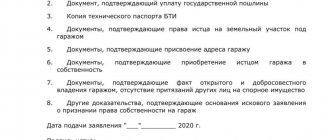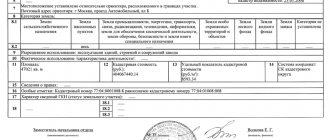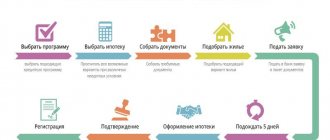From our article you will learn:
One of the most popular competitive procurement methods among both customers and suppliers is an auction.
From our article you will learn:
The concept of an electronic auction under 44-FZ
Cases when the customer is obliged to conduct an electronic auction
Deadlines for the auction under Law No. 44-FZ
Submission and consideration of applications for an electronic auction
How does an electronic auction work under Law No. 44-FZ?
Terms and procedure for auction cancellation
Deadlines for concluding a contract based on the results of an electronic auction
The concept of an electronic auction under 44-FZ
In accordance with the Federal Law of 04/05/2013 No. 44-FZ “On the contract system in the field of procurement of goods, works, services to meet state and municipal needs” (hereinafter referred to as 44-FZ), an auction in electronic form is understood as an auction in which information the procurement is communicated to an unlimited number of persons by posting a notice and documentation about such an auction in the unified information system (UIS).
The auction is conducted on an electronic platform by its operator. Within the framework of 44-FZ, auctions, as well as other competitive procurement in electronic form, are carried out only on 8 electronic platforms specified in the Order of the Government of the Russian Federation dated July 12, 2018 No. 1447-r. This:
- Joint Stock Company "Agency for State Order of the Republic of Tatarstan";
- Joint Stock Company "Unified Electronic Trading Platform";
- Joint Stock Company "Russian Auction House";
- Joint Stock Company "TEK-Torg";
- Joint Stock Company "Electronic Trading Systems";
- Closed Joint Stock Company "Sberbank-Automated Trading System";
- Limited Liability Company "RTS-Tender";
- Limited Liability Company "Electronic trading platform GPB".
Cases when the customer is obliged to conduct an electronic auction
Law No. 44-FZ clearly states that the customer is obliged to conduct an electronic auction if goods, works, and services are included in the so-called auction List. This may be a list established by the Government of the Russian Federation or an additional List established by a subject of the Russian Federation.
If the procurement object is included in the auction List, then the customer does not have the right to hold a tender, while other competitive procurement methods (quotation, request for proposals), as well as procurement from a single supplier (contractor, performer) are permitted by law. If the procurement object is not included in the auction List, no restrictions are established for the customer regarding the auction. At the federal level, the auction List was approved by order of the Government of the Russian Federation dated March 21, 2016 No. 471-r and includes goods (work, services) according to OKPD2 codes.
Stages of an electronic auction
It all starts with finding a suitable auction in the EIS . Having found an interesting offer, you need to familiarize yourself with the notice, documentation, requirements and other details. If you are satisfied with everything, then you can submit an application .
Drawing up an application for participation in the auction is the most important stage. To do this correctly, you need to read the auction documentation very carefully. The application consists of two parts.
- The first part: must be anonymous, contains the participant’s consent to supply the required goods (works, services) and a description of their characteristics.
- The second part: contains information about the participant, documents confirming the participant’s compliance with the requirements established in the auction documentation (various licenses and certificates).
All procurement analytics are in one service. Evaluate customers and competitors to avoid problems.
After the deadline for submitting applications has expired, the customer creates a protocol for considering the first parts of the applications, and the site operator is obliged to inform the supplier within the established time frame whether he has been admitted to the auction.
The customer reviews the first parts of the applications, forms a protocol, sends it to the site operator, thereby informing about which applications he has admitted to the auction. After this, the operator informs the participants who has completed the first parts and can participate in the procedure. The auction is conducted by the site operator.
There is a good reason why the customer reviews the first parts of applications first . The fact is that the second parts contain information about the participant, which means that the customer, understanding who submitted the applications, can somehow influence the result. Even if the participant tries to provide information about himself in the first parts, the application will be rejected.
Only after the auction will the second parts of the applications go to the customers, from which they will learn which companies are hidden under which numbers. Based on the results of consideration of the second parts of applications, a winner is identified, to whom the government contract is sent. It must be signed electronically within the specified time frame.
To participate, a special account is opened to pay for the application. Only those who have paid for the application . This rule applies to all procurement methods, except for requesting quotes and purchasing from a single supplier.
The amount of security depends on the initial contract price:
| starting price | Minimum % of application security | Maximum % of application security | Legal act |
| less than 1 million | Not installed | Not installed | Art. 16 44-FZ |
| from 1 to 5 million | 0,5 | 1 | Letter of the Ministry of Finance dated May 23, 2018 No. 24-02-05/34911 |
| from 5 million to 20 million | 0,5 | 1 | clause 1, part 16, art. 44 44-FZ |
| more than 20 million | 0,5 | 5 | clause 2, part 16, art. 44 44-FZ |
You can secure your application with a bank guarantee. But to get it, you will have to collect an impressive package of documents: a balance sheet for the last year, and maybe for three years, profit and loss statements. But even in this case, the bank may refuse the guarantee.
If there is a bank guarantee, the participant pays the bank a percentage of the NMCC for services. It is less than when the application is secured with money. But the bank does not return it.
After the purchase is completed, the security for all auction participants is returned to a special account. But the winner will have this security suspended until he signs the contract. If for some reason he does not do this, he will be included in the register of unscrupulous suppliers and this money will be written off from him in favor of the government customer.
In addition to the application, you must provide a contract . Moreover, the contract security is much larger than the application security - sometimes the customer requests up to 30% of the initial maximum contract price. This amount can be transferred to the customer’s temporary account or presented in the form of a bank guarantee. Thus, the customer tries to insure himself against unscrupulous suppliers. If the supplier seriously violates the terms, then this money is taken from him.
At the same time, not everyone pays to secure the contract, but only the winner. The application security is blocked only from the winner until the contract is signed. He can sign a contract only after paying for the contract security. When the contract security is paid, the contract is signed, the contract security is returned to the winner.
Anyone who does not secure a contract - does not pay in money or does not receive a bank guarantee - is recognized as a draft dodger and is included in the register of unscrupulous suppliers for two years. All this time he cannot take part in procurement.
Most often, bank guarantees are used to secure a contract. But banks don’t give them to beginners. If you have not previously taken part in procurement and have just won the first contract, you will have to secure both applications and contracts with money. Therefore, it is better to start participating with small contracts - up to 5 million rubles.
Deadlines for the auction under Law No. 44-FZ
In accordance with Law No. 44-FZ, the deadlines for posting a notice of an electronic auction in the Unified Information System depend on the size of the initial (maximum) contract price (NMCP) and the specifics of the procurement object.
So, if the NMCC does not exceed three hundred million rubles, or the NMCC for construction, reconstruction, major repairs, or demolition of a capital construction project does not exceed two billion rubles, then the period for posting the notice in the Unified Information System must be at least seven days before the expiration date filing applications for participation in such an auction.
If the NMCC is more than three hundred million rubles, and for the procurement of contract work two billion rubles, then the notice is placed by the customer in the Unified Information System no less than fifteen days before the deadline for submitting applications for participation in such an auction.
Land plot through auction: cheap at first, but expensive later?
If you decide to acquire land, then you can purchase it in different ways: buy it from a private person, from a legal entity, in a cottage village, or through an auction. From time to time, our state or municipalities sell plots through their auctions, often such an offer turns out to be cheaper than the market value. But... there are many pitfalls here that Realestate.ru decided to bring to the surface.
Legislative basis
The plots that we can use for the construction of a country house are classified as agricultural land. Accordingly, they are subject to the general provisions for trading agricultural land. Legal regulation of land auctions is carried out by a number of documents: the Land Code of the Russian Federation, Rules for the organization and conduct of auctions for the sale of state or municipally owned land plots or the right to conclude lease agreements for such land plots, approved by Decree of the Government of the Russian Federation of November 11, 2002 No. 808, Article 10 of the Federal Law “101-FZ of July 24, 2002 “On the turnover of agricultural land.”
According to Anna Girman, a lawyer at the regional bar association of the city of Odintsovo , when holding land auctions, the organizer is an executive body of state power or a local government body. “When selling federally owned land plots, these are branches of the Russian Federal Property Fund,” she clarified. Also, the organizer of the auction may be a specialized organization under an agreement with the specified bodies.”
How is the price determined?
No one limits the owner, in this case the state, in determining the initial cost of the site. “However,” according to Anna Girman, “when putting up for auction land plots that are federally owned, the Government of the Russian Federation Decree No. 808 dated November 11, 2002 obliges the Federal Property Management Agency to determine the initial cost of the plot or the initial amount of the rent based on the report of an independent appraiser.”
Bidding procedure:
• Making a decision to hold tenders; • Publication of notice of the auction in the media; • Acceptance of applications from applicants, their registration in the application journal; • Consideration of applications and documents of applicants, establishing the fact of receipt of deposits from applicants, making a decision on recognizing applicants as tenderers or refusing admission, drawing up a protocol on recognizing applicants as tenderers; • Conducting auctions at the place, day and time specified in the notice; • Registration of trading results with protocol; • Publication of information about the results of the auction in the same media in which the notice of the auction was published; • Concluding a purchase and sale agreement or a lease agreement for a land plot that is in state or municipal ownership.
Where can I find information about auctions?
According to Anna Girman, a notice of bidding must be published in the media determined by the Government of the Russian Federation, a government body of a constituent entity of the Russian Federation or a local government body at least 30 days before the date of the bidding and contain the following information:
• form of bidding and submission of proposals on the price or amount of rent; • deadline for making a decision to refuse to hold a tender; • the subject of the auction, including information about the location (address), area, boundaries, encumbrances, cadastral number, intended purpose and permitted use of the land plot, as well as other data allowing to individualize the land plot; • name of the state authority or local government body that made the decision to hold the auction, details of the said decision; • name of the auction organizer; • the initial price of the auction item or the initial amount of the rent, the “auction step”, the amount of the deposit and account details for its transfer; • application form for participation in the auction, procedure for acceptance, address of the place of acceptance, dates and times of the beginning and end of acceptance of applications and documents attached to them, proposals, as well as a list of documents submitted by applicants for participation in the auction; • conditions of the competition; • place, date, time and procedure for determining bidders; • place and deadline for summing up the results of the auction, the procedure for determining the winners of the auction; • the period for concluding a purchase and sale or lease agreement for a land plot; • date, time and procedure for on-site inspection of the land plot; • draft contract for the sale or lease of a land plot; • information about the deadline for paying the cost if the land plot is sold on credit (with deferred payment), as well as about the procedure, timing and amount of payments if the land plot is sold in installments. Meanwhile, according to the Group’s General Director Ilya Terentyev , it is quite difficult to find information on upcoming auctions. “You need to know exactly where and how to look for auction announcements,” he told RealEstate.ru. “For example, the organizer can place information in a regional newspaper among other advertisements, printing it in small print, so that the average person will not even pay attention to this information.” Often information about auctions is posted on the websites of local administrations if the plots are in municipal ownership. There is also a nationwide trading platform where you can also look for an interesting offer. We are talking about torgi.gov.ru. There, of course, there are plots on the territory of the Moscow region and, most likely, land in New Moscow still under the guise of the Moscow region. Because the capital’s Department of Land Resources has not yet included new districts - Novomoskovsky and Troitsky - in its “List of land plots by administrative districts for sale at auction in 2012”. And the list is here: dzr.mos.ru/zemelnye_aukciony/list/.
In addition, you can monitor the websites of territorial departments of the Federal Property Management Agency. In particular, if we are talking about state lands sold in the Moscow region, then it makes sense to periodically look at this resource: tu-rosim-mo.ru, in the “Auctions” section.
The notice of cancellation of the auction is also published in newspapers and on electronic trading platforms no later than 5 days from the date of this decision in the same media in which the notice of the auction was published.
Required documents
To participate in the auction, the applicant submits to the auction organizer (in person or through his representative): an application in the form approved by the auction organizer, a payment document with a bank mark to confirm the transfer by the applicant of a deposit to secure payment for the land plots acquired at the auction (or the right to conclude lease agreements such land plots) and other documents in accordance with the list published in the notice of auction. Before buying a plot, an application and a list of documents are drawn up in two copies, one of which remains with the auction organizer, the other with the applicant.
The list of documents is open; the auction organizer has the right to demand any list of documents for each specific site. One bidder has the right to submit only one application for participation in the auction. When submitting an application, an individual presents an identification document. If an application is submitted by a representative of the applicant, a power of attorney must be presented.
After which the application with the documents attached to it is registered by the auction organizer in the application journal, assigning a number to each application and indicating the date and time of submission of documents. On each copy of the documents, the auction organizer makes a note indicating acceptance of the application, indicating the number, date and time of submission of documents.
To participate in the auction, the applicant makes a deposit to the account(s) of the auction organizer specified in the notice of the auction. The document confirming receipt of the deposit to the account(s) of the auction organizer is an extract(s) from the account(s) of the auction organizer.
Restrictions
There are categories of persons who are not allowed to trade: • foreign citizens, foreign legal entities, stateless persons, as well as legal entities if their authorized (share) capital contains a share of foreign citizens, foreign legal entities, stateless persons, which exceeds 50%. Such individuals and companies can only rent state land; • persons who submitted incorrectly completed documents or not all documents in accordance with the list specified in the information message (except for proposals on the price or amount of rent); • a person not authorized by the applicant to carry out such actions; • if the bidders have not confirmed receipt of the deposit within the established period to the account(s) specified in the notice of bidding.
Conducting an auction
The auctions are held at the place specified in the notice, on the appropriate day and time. The auction begins with the announcement by the auctioneer of the name, main characteristics and initial price of the land plot or the initial rental amount, the “auction step” (“auction step” is set in the amount of 1-5% of the initial price of the land plot or the initial rental amount and not changes throughout the auction) and the order of the auction.
After that, participants are given numbered tickets, which they raise after the auctioneer announces the starting price or the initial amount of rent and each subsequent price or amount of rent if they are ready to buy a plot of land or enter into a lease agreement in accordance with this price or amount of rent.
If the auction is to increase the price (and there are quite a few types of auctions), then the auctioneer sets each subsequent price by increasing the current price by an “auction step”. After announcing the next price, the auctioneer calls the ticket number of the auction participant who was the first to raise the ticket. Then the next price is called.
If there are no auction participants ready to buy the land plot in accordance with the price or rental amount named by the auctioneer, the auctioneer repeats this price three times. If after this no one has raised a ticket, the auction ends. The winner is the participant whose ticket number was last named by the auctioneer.
After the auction
The results of the auction are documented in a protocol, which is signed by the organizer of the auction, the auctioneer (when holding an auction that is open according to the form of submission of proposals on the price or amount of rent) and the winner of the auction on the day of the auction. The protocol on the results of the auction is drawn up in two copies, one of which is given to the winner, and the second remains with the organizer of the auction.
The protocol indicates:
• registration number of the auction item; • location (address), cadastral number of the land plot, data on state registration of rights to the land plot; • bidders' proposals; • name (name) of the winner (details of a legal entity or passport details of a citizen); • the price of the land plot to be acquired or the amount of rent; • deadline for paying the cost if the land plot is sold on credit (with deferred payment); • procedure, terms and amounts of payments if the land plot is sold in installments (payment schedule).
The protocol on the results of the auction is the basis for concluding a purchase and sale or lease agreement for a land plot with the winner of the auction. The agreement must be concluded no later than five days from the date of signing the protocol. The deposit made by the winning bidder is counted towards payment for the land plot acquired into ownership or towards the rent.
The auction organizer is obliged to return the deposit to bidders who did not win the auction within three banking days from the date of signing the protocol on the results of the auction.
Information about the results of the auction is published in the same media in which the notice of the auction was published, within one month from the date of conclusion of the contract for the sale or lease of a land plot.
Failed auctions
The auction is considered invalid if less than two participants took part in the auction; none of the bidders during the auction, after the initial price or initial rental amount was announced three times, raised a ticket; the winner of the auction avoided signing the protocol on the results of the auction, concluding a purchase and sale agreement or leasing a land plot.
If the auction is declared invalid, the auction organizer has the right to announce a re-conduction of the auction. However, their terms and conditions may be changed. The auction organizer can reduce the initial price of a land plot or the initial rental amount and reduce the “auction step” by no more than 15% without re-evaluation.
What's the catch?
At first glance, the advantage of purchasing a plot of land from the authorities is the relatively low price. According to Ilya Terentyev, the cost may be approximately three times lower than the market price. However, do not forget that free cheese can only be found in a mousetrap. “Finding a high-quality land plot suitable for construction is not so easy,” he clarified, “sometimes plots are put up for public auction that will require significant cash injections for their development.”
A participant in the real estate market, who wished to remain anonymous, also advises being more careful when purchasing land through auctions. Thus, according to the anonymous author, illiquid lands with some kind of problems are usually thrown out for open auction. “Good land is awarded at closed auctions,” he added, “and even then it is known in advance who will get the plot.”
Maria Matveeva
Submission and consideration of applications for an electronic auction
An application for participation in an electronic auction consists of two parts, which are simultaneously sent by the procurement participant to the operator of the electronic platform. The first part of the application indicates the consent of the procurement participant to supply goods, perform work or provide services on the terms stipulated by the documentation on the electronic auction and not subject to change based on the results of the procurement.
When purchasing goods, including those supplied to the customer during the performance of the purchased work, the provision of purchased services, the first part shall indicate:
- a) name of the country of origin of the goods;
- b) specific indicators of the goods corresponding to the values established in the electronic auction documentation, and an indication of the trademark (if any).
Such information is included in the application if there is no indication of a trademark in the electronic auction documentation or if the procurement participant offers a product that is marked with a trademark different from the trademark specified in the electronic auction documentation.
If you are participating in an auction for construction work, and the customer has included design and estimate documentation as part of the documentation, then the first part of the application must exclusively contain the consent of the procurement participant to perform the work under the conditions provided for in the electronic auction documentation. Such consent is given using the software and hardware of the electronic platform.
Note! It is prohibited to indicate the name of the procurement participant (directly or indirectly) in the first part of the application, as this violates the confidentiality of the procurement procedure.
Information about the procurement participant is disclosed in the second part of the application, which also provides documents confirming its compliance with the requirements established for participants in such an auction.
Submitting an application to participate in the electronic auction is possible only for those who have registered in the Unified Register of Procurement Participants (URPZ) and are accredited on the electronic platform.
The procurement participant has the right to submit only one application. The operator of the electronic platform, within one hour from the moment of receiving the application, assigns an identification number to it and confirms its receipt. At the same time, submitting an application does not mean automatically sending it to the customer, because Law No. 44-FZ establishes cases when the operator of an electronic platform returns the application to the participant.
The following are subject to return:
- applications submitted in violation of the procedure for signing an application with an electronic signature;
- excess applications (two or more from one participant), provided that previously submitted applications by this participant have not been withdrawn. The operator will return all applications of such participant;
- late applications, that is, received after the date or time of the deadline for submitting applications for participation in such an auction;
- applications submitted three months before the expiration date for registration of the participant in the UIS;
- applications from a participant included in the Register of Unscrupulous Suppliers (Contractors, Performers), subject to the customer establishing a requirement that they are not in such a register;
- applications from participants who did not submit electronic documents (or copies thereof) of the procurement participant for inclusion in the ERUZ and accreditation on the site, provided for by the list established by the Government of the Russian Federation in accordance with Part 3 of Article 31 of Law No. 44-FZ, or the inconsistency of such documents (or their copies) to the requirements established in the notice of an electronic auction.
Applications received from the operator of the electronic platform are considered by the customer's auction commission.
As in the case of the deadline for posting a notice, the deadline for consideration of the first parts of applications is “tied” to the NMCC. If the NMCC does not exceed 300 million rubles or does not exceed two billion rubles when purchasing contract work, then the commission considers the first parts within one working day, and if the NMCC exceeds the specified values, then three working days.
The auction commission checks the first parts of applications for compliance with the requirements established by the documentation of such an auction in relation to the purchased goods, works, services and makes a decision on admission or non-admission to the auction.
The procurement participant will not be allowed to participate in the auction in two cases if:
- did not provide the information required by Part 3 of Article 66 of Law No. 44-FZ or provided false information;
- if the information received from him does not comply with Law No. 44-FZ and the documentation about such an auction.
The second parts of applications are received by the customer from the site operator after the protocol of the electronic auction is posted on the site, that is, only after the auction has taken place.
The auction commission reviews the second parts of applications before making a decision on the compliance of five such applications with the requirements established by the documentation for such an auction. If less than ten participants took part in such an auction and less than five applications for participation in such an auction meet the specified requirements, the auction commission considers the second parts of applications submitted by all its participants who took part in the auction.
Consideration of applications begins with an application for participation in such an auction submitted by its participant who offered the lowest contract price. The total period for consideration of the second parts of applications for participation in an electronic auction cannot exceed three working days from the date of posting the protocol of the electronic auction on the electronic platform.
The winner of the auction is the one who offered the lowest contract price, provided that his application is recognized by the customer's commission that meets the requirements established by the documentation.
List of documents required for participation in the auction
An auction for the right to conclude a lease agreement for a land plot, open according to the form for submitting proposals and the composition of Participants.
To participate in the auction, the Applicant must submit the following documents within the deadline established in the notice of the auction:
- An application for participation in the auction in the form established in the Notice of the Auction, indicating the bank details of the Applicant’s account for the return of the deposit;
- copies of identification documents of the Applicant (for citizens) (in case of submitting a copy of the passport of a citizen of the Russian Federation, it is necessary, in accordance with current legislation, to submit copies of 20 (twenty) of its pages);
- duly certified translation into Russian of documents on state registration of a legal entity in accordance with the legislation of a foreign state if the Applicant is a foreign legal entity;
- documents confirming the payment of the deposit (submission of documents confirming the payment of the deposit is recognized as the conclusion of an agreement on the deposit).
An auction for the right to conclude a lease agreement for a land plot, open according to the form of submitting proposals for the price of the auction item with a limitation on the composition of Participants - only for individuals (citizens).
To participate in the auction, the Applicant must submit the following documents within the deadline established in the notice of the auction:
- An application for participation in the auction in the form established in the Notice of the Auction, indicating the bank details of the Applicant’s account for the return of the deposit;
- copies of identification documents of the Applicant (for citizens) (in case of submitting a copy of the passport of a citizen of the Russian Federation, it is necessary, in accordance with current legislation, to submit copies of 20 (twenty) of its pages);
- documents confirming the payment of the deposit (submission of documents confirming the payment of the deposit is recognized as the conclusion of an agreement on the deposit).
An auction for the sale of a land plot, open according to the form of submitting proposals for the price of the auction item with a limitation on the composition of Participants - only for individuals (citizens).
To participate in the auction, the Applicant must submit the following documents within the period specified in the notice of the auction:
- An application for participation in the auction in the form established in the Notice of the Auction, indicating the bank details of the Applicant’s account for the return of the deposit;
- copies of identification documents of the Applicant (for citizens) (in case of submitting a copy of the passport of a citizen of the Russian Federation, it is necessary, in accordance with current legislation, to submit copies of 20 (twenty) of its pages);
- documents confirming the payment of the deposit (submission of documents confirming the payment of the deposit is recognized as the conclusion of an agreement on the deposit).
Sale (privatization) of buildings, structures, structures:
Documents required for participation in tenders for the sale (privatization) of buildings, structures, structures:
For legal entities:
- The application is submitted by filling out its electronic form, located in a part of the electronic platform open to access by an unlimited circle of persons, with the attachment of electronic documents or electronic images of documents, that is, documents on paper converted into electronic digital form by scanning while preserving their details;
- Certified copies of constituent documents;
- A document containing information about the share of the Russian Federation, a constituent entity of the Russian Federation or a municipal entity in the authorized capital of a legal entity (register of shareholders or an extract from it or a letter certified by the seal of the legal entity (if any) and a letter signed by its head);
- A document that confirms the authority of the head of a legal entity to carry out actions on behalf of the legal entity and, in accordance with which the head of the legal entity has the right to act on behalf of the legal entity without a power of attorney.
For individuals, including individual entrepreneurs:
- The application is submitted by filling out its electronic form, located in a part of the electronic platform open to access by an unlimited circle of persons, with the attachment of electronic documents or electronic images of documents, that is, documents on paper converted into electronic digital form by scanning while preserving their details;
- Copies of all sheets of the identity document (in case of submitting a copy of the passport of a citizen of the Russian Federation, it is necessary, in accordance with current legislation, to submit copies of 20 (twenty) of its pages).
If his representative acts on behalf of the Applicant by power of attorney, a power of attorney to act on behalf of the Applicant, executed in the prescribed manner, or a notarized copy of such a power of attorney must be attached to the Application. If the power of attorney to carry out actions on behalf of the Applicant is signed by a person authorized by the head of the legal entity, the Application must also contain a document confirming the authority of this person.
Rental of buildings, structures, structures:
Documents required to participate in tenders for the lease of buildings, structures, structures:
For legal entities:
- Application for participation in the auction (in time and in the form established by the Auction Documentation) indicating the bank details of the Applicant for the return of the deposit;
- Company name (title), information about the organizational and legal form, location, postal address, contact telephone number;
- Certified copies of constituent documents;
- An extract from the Unified State Register of Legal Entities or a notarized copy of such an extract, received no earlier than six months before the date of publication of the auction notice on the Official Bidding Website, a duly certified translation into Russian of documents on state registration of a legal entity in accordance with legislation of the relevant state (for foreign persons), received no earlier than six months before the date of publication of the auction notice on the Official Bidding Website;
- A document confirming the authority of a person to carry out actions on behalf of the Applicant (a copy of the decision on appointment or election or an order on the appointment of an individual to a position, according to which such an individual has the right to act on behalf of the Applicant without a power of attorney);
- If another person acts on behalf of the Applicant, the Application for participation in the auction must also contain a power of attorney to act on behalf of the Applicant, certified by the seal of the Applicant (if any) and signed by the head of the Applicant or a person authorized by this head, or a notarized copy of such a power of attorney. If the specified power of attorney is signed by a person authorized by the Applicant’s manager, the Application must also contain a document confirming the authority of such person;
- A decision on approval or completion of a major transaction or a copy of such a decision if the requirement for the need for such a decision to carry out a major transaction is established by the legislation of the Russian Federation, the constituent documents of a legal entity and if for the Applicant the conclusion of a lease agreement, payment of a deposit or enforcement of a lease agreement are a major transaction;
- Statement about the absence of a decision to liquidate the Applicant, about the absence of a decision of the arbitration court to declare the Applicant bankrupt and to open bankruptcy proceedings, about the absence of a decision to suspend the activities of the Applicant in the manner prescribed by the Code of the Russian Federation on Administrative Offences;
- Proposals on the conditions for performing work in the form presented in the auction documentation;
- Documents or copies of documents confirming the payment of a deposit (if a requirement for a deposit is established for the Auction Object (lot)).
For individual entrepreneurs:
- Application for participation in the auction (in time and in the form established by the Auction Documentation) indicating the bank details of the Applicant for the return of the deposit;
- An extract from the Unified State Register of Individual Entrepreneurs or a notarized copy of such an extract, received no earlier than six months before the date of publication of the auction notice on the Official Bidding Website, a duly certified translation into Russian of documents on state registration of an individual as an individual an entrepreneur in accordance with the legislation of the relevant state (for foreign persons), received no earlier than six months before the date of publication of the auction notice on the Official Bidding Website;
- Statement about the absence of a decision of the arbitration court to declare the Applicant bankrupt and to open bankruptcy proceedings, about the absence of a decision to suspend the activities of the Applicant in the manner prescribed by the Code of the Russian Federation on Administrative Offences;
- Documents or copies of documents confirming the payment of a deposit (if a requirement for a deposit is established for the Auction Object (lot);
- Proposals on the conditions for performing work in the form presented in the auction documentation.
For individuals:
- Application for participation in the auction (in time and in the form established by the Auction Documentation) indicating the bank details of the Applicant for the return of the deposit;
- Copies of identification documents of the Applicant (in case of submitting a copy of the passport of a citizen of the Russian Federation, it is necessary, in accordance with the current legislation, to submit copies of 20 (twenty) of its pages);
- Documents or copies of documents confirming the payment of a deposit (if a requirement for a deposit is established for the Auction Object (lot);
- Proposals on the conditions for performing work in the form presented in the auction documentation.
*the exact list of documents for participation in the auction for a specific object is contained in the auction documentation published on the official auction website.
How does an electronic auction work under Law No. 44-FZ?
The electronic auction is conducted by reducing the NMTsK specified by the customer in the notice in the manner established by Article 68 of Law No. 44-FZ.
The day of an electronic auction is the business day following the expiration date for consideration of the first parts of applications for participation in such an auction. But if you are participating in an electronic auction for the purchase of contract work and the customer includes design documentation in the documentation, then be prepared for the auction to be held four hours after the deadline for submitting applications.
When participating in auctions, you should remember that the start time of the auction is set by the operator of the electronic platform in accordance with the time of the time zone in which the customer is located.
An electronic auction is carried out by reducing the NMCC by an “auction step”, which ranges from 0.5 percent to 5 percent of the initial (maximum) contract price.
Participants in the electronic auction submit proposals for the contract price, providing for a reduction in the current minimum proposal for the contract price by an amount within the “auction step”, and also have the right to submit a proposal for the contract price regardless of the “auction step”, subject to compliance with the requirements provided for in Part 9 of Article 68 Law No. 44-FZ, which establishes that when conducting an electronic auction, a participant does not have the right to submit a proposal for the contract price:
- equal to or greater than its previously submitted proposal for the contract price, as well as a proposal equal to zero;
- which is lower than the current minimum contract price offer, reduced within the “auction step”;
- which is lower than the current minimum contract price offer if submitted by such an electronic auction participant.
The time for accepting proposals for the contract price from auction participants is ten minutes from the start of such an auction until the expiration of the deadline for submitting proposals for the contract price, as well as ten minutes after the receipt of the last proposal for the contract price. If during the specified time no one submits proposals for a lower contract price, then such an auction automatically ends.
Any participant in an electronic auction, after posting the auction protocol on the electronic platform and in the Unified Information System, has the right to send a request to the operator of the electronic platform for an explanation of the results of such an auction, and the operator is obliged to respond to such a request within two working days.
In order to protect yourself from various situations related to a failure on the electronic platform and to protect your rights and legitimate interests, the FAS Russia recommends using the GIS “Independent Registrar” when conducting electronic procurement (letter of the FAS Russia dated February 25, 2019 No. ME/13989/19 ).
You can download the GIS plugin “Independent Registrar” on the EIS website.
GIS "Independent Registrar" provides video recording of all actions of procurement participants carried out by them on electronic platforms included in the list of operators of electronic platforms (except for a specialized electronic platform) approved by Order of the Government of the Russian Federation dated July 12, 2018 No. 1447-r, when conducting electronic procurement both in accordance with Law No. 44-FZ and Federal Law dated July 18, 2011 No. 223-F3 “On the procurement of goods, works, services by certain types of legal entities.”
When making this video recording, the GIS “Independent Recorder” also records the availability of electronic platforms, the presence of an Internet connection and the settings of the user’s workplace.
Using the functionality of the GIS "Independent Registrar" allows procurement participants to record cases of technical problems in the work of the operator of the electronic platform, including when submitting applications for participation in procurement and submitting price proposals, concluding a contract with the customer.
Procurement participants can submit video recording data from the GIS “Independent Registrar” to the FAS Russia to confirm the presence or absence of technical problems in the operation of the electronic platform. It should be noted that screenshots do not allow checking their accuracy and cannot indicate the presence or absence of technical problems in the operation of the electronic platform.
Rosreestr is trying to eliminate the legal gap in the Land Code. The department has developed a procedure for conducting an electronic auction for the right to conclude a contract for the sale or lease of state land - due to its absence, government agencies are now effectively deprived of the opportunity to conduct auctions in this form. As planned by Rosreestr, a new procedure for this area will be introduced gradually - until January 1, 2023, a transition period will be established, after which the electronic form of the auction will become mandatory.
Rosreestr has developed a procedure for conducting electronic auctions for the provision of land plots that are in state or municipal ownership; the agency published draft amendments to the Land Code on regulation.gov.ru. It should be noted that the possibility of holding electronic auctions for the right to conclude a contract of sale or lease of a plot of land has been formally provided for since 2015, but the procedure has not yet been established by law, so government agencies are actually unable to conduct auctions in this form.
A year ago, deputies made an attempt to solve the problem, but their bill stalled at the first reading stage. On the part of the government, as they say in Rosreestr, “there has not yet been a similar bill, since previously the Ministry of Economy proposed to develop a unified law on electronic trading - a similar approach was proposed by the Federal Antimonopoly Service.” The idea of developing a separate procedure was returned against the backdrop of the “corona crisis” - its adoption is provided for in the National Economic Recovery Plan.
As follows from the bill prepared by Rosreestr, electronic auctions for the sale or lease of state land will be held on sites already selected by the government for public procurement.
There, as well as on the official website of the government agency, notices about the electronic auction will be published - participants will be able to submit their applications through the operator. Participants' proposals during the auction will be expected within 10 minutes - when bids are received to increase the price, the countdown begins again, and if they are absent, the auction ends. Within an hour after the end of the auction, a protocol is posted on the site, on its basis an agreement is concluded with the winner, which the parties sign with a qualified electronic signature.
The bill proposes to revise the terms of the contract concluded with the auction participant who made the second price offer if the winner avoided signing the document. Now government agencies offer such a participant to conclude an agreement at the price of the original winner - as noted in Rosreestr, this approach contradicts the principle of competition among auction participants. Moreover, the department adds, in forestry and water legislation, in such cases, contracts are concluded at the price offered by this particular participant; Rosreestr proposes to use a similar rule when conducting auctions (not only electronic) in relation to land plots.
The new auction procedure will be introduced gradually; government agencies will be able to independently choose either a paper or electronic auction form until January 1, 2023.
After this date, the use of the electronic form will become mandatory, with the exception of auctions for the provision of plots to citizens for individual housing construction or private farming, as well as to farms for their activities.
Terms and procedure for auction cancellation
Law No. 44-FZ gives the customer the right to cancel any competitive procurement with the exception of a request for proposals. In accordance with Article 36, the customer may cancel an electronic auction no later than five days before the deadline for submitting applications for participation in such a procurement.
After the expiration of the specified period and before the conclusion of the contract, the customer has the right to cancel the electronic auction only in the event of force majeure circumstances in accordance with civil law.
Unlike the deadline, the reasons for cancellation are not regulated by Law No. 44-FZ, that is, the reason for cancellation can be absolutely any. Most often, customers cancel an auction in the following cases:
- reducing budget limits;
- detecting errors in procurement documentation;
- receiving an order from the control body to cancel the purchase;
- the need to enforce a court decision.
When canceling a purchase, the customer is not liable to the procurement participants who submitted bids, except if, as a result of the cancellation of the determination of the supplier (contractor, performer), the procurement participants suffered losses as a result of dishonest actions of the customer.
The decision to cancel the purchase is posted in the Unified Information System on the day it is adopted and is immediately brought to the attention of the procurement participants who submitted applications (if the customer has information to communicate with these participants).
If the purchase was cancelled, then the funds blocked to secure the application are returned to the participant in his special account.
An electronic auction can be canceled not only by the decision of the customer, but also in accordance with the order issued by the control body, if such a purchase was carried out by the customer in violation of the current legislation in the field of procurement.
Important things in an electronic auction
In the notice of an electronic auction, customers establish three types of requirements for participants: uniform, additional and optional.
Participants must meet all these requirements. They declare compliance with uniform requirements independently on the ETP, thus confirming that the legislation does not limit their participation in procurement.
If the purchase is carried out for the SMP, you need to “check” the ETP to confirm that you belong to the SMP.
What is a request for clarification
Government customers often make mistakes in documentation. They can be anything: the place of delivery, the quantity of goods is not indicated, an important document is not attached, unclear wording is used, etc. But a participant in an electronic auction has the right to submit a request for clarification through the electronic platform. The number of requests is limited - no more than three times, but in the request itself you can ask as many questions as necessary.
Having received a request, the customer is obliged to respond to it within two days. If he really made a mistake, he must make changes to the documentation. The timing of the procedure will change upward, but everything will be according to the rules.
What is an auction step
On all eight ETPs, the auction step and waiting time for price offers are the same.
The step is set in the range from 0.5 to 5% of the NMCC, but not less than 100 rubles, and the time for submitting proposals is up to 10 minutes.
For example, if an auction is held for 1 million rubles, then the auction step is from 5,000 to 50,000 rubles. You can “step” with any number in this range. After each participant steps, the 10 minutes will be extended.









